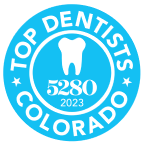Q&As About a Dental Crown vs Tooth Extraction
Because you may eventually need a tooth extraction if a crown fails, why not just save time and money by extracting it now?
 You need to evaluate the pros and cons of tooth extraction vs restoration. Be sure to consider both the health and financial aspects. At first glance, extracting a damaged tooth seems like a sensible financial choice. The problem is, a cyclone of events takes place when you alter nature by removing a tooth.
You need to evaluate the pros and cons of tooth extraction vs restoration. Be sure to consider both the health and financial aspects. At first glance, extracting a damaged tooth seems like a sensible financial choice. The problem is, a cyclone of events takes place when you alter nature by removing a tooth.
Each tooth in your mouth has a specific job, and all of your teeth together create your occlusion. How upper and lower teeth fit together when the mouth is closed is the definition of occlusion. Tooth extraction without immediate tooth replacement leads to a host of problems that affect the mouth, jaws, and overall wellness.
Here’s what can happen if you opt for tooth extraction over a dental crown, without replacing the tooth with a bridge or dental implant:
- First, you have the tooth extraction. All seems well. No more pain! But the problem isn’t quite solved…
- Over time, when you chew foods, your remaining teeth begin to drift toward the empty space. The body does this to compensate for the additional workload.
- Shifting of teeth disrupts occlusion, so upper and lower teeth no longer fit together in harmony. This alone can cause chips, cracks, tooth wear, and crazing (weblike cracks) when you bite and chew.
- Your jaw joints can no longer find a comfortable resting position. Surrounding nerves and muscles become overworked. Inflammation begins. This leads to TMJ disorder (also called TMJ dysfunction or TMD).
- Tired jaw muscles spasm, prompting teeth to clench and grind, usually while you sleep. This condition is called bruxism, and it also contributes to chips, cracks, tooth wear, and crazing.
- According to research, one lost or extracted tooth that’s not replaced puts you at risk of losing additional teeth over the next four years. If those teeth aren’t replaced, the cycle continues until you become edentulous, meaning toothless.
- Now you face damaged teeth, as well as TMJ disorder and bruxism. You’ll need re-equilibration by way of restoring damaged teeth with crowns. You’ll also need a nightguard to end bruxism and to prevent or reduce TMJ pain. In short, you’re left with a potentially lifelong problem that comes with a big cost to both health and finances–and potentially, additional tooth extractions.
What if you replace your extracted tooth?
In some cases, this is the best option, particularly if you can afford to replace the extracted tooth with a dental implant instead of a bridge.
An implant is costly to your pocketbook, but dental implants have a 98% success rate. They can last a lifetime. Implants also stimulate the jawbone, so natural deterioration from the lost tooth will not occur. Like a natural tooth would need repair, the crown upon the implant post will need replacement when it incurs wear and other damage.
If you choose a dental bridge after tooth extraction, it should last about 10 years before it needs to be replaced. Two healthy teeth will be crowned to support your bridge. Altering these healthy teeth opens them up to the potential for failure in the future because they take all the pressure placed upon the bridge when you chew.
Because the bridge isn’t anchored into the jaw, expect your jawbone to deteriorate where your tooth was extracted. If you choose to wait a few years after extraction before implant placement, you should request a spacer to eliminate the potential for teeth drifting. You may also require prerequisite bone grafting to build up the jawbone before implant surgery. The entire process can take a year or more.
Schedule Your Second Opinion
If you live in the Denver area, call the dental office of Metro Dental Care today. We’ll schedule your second opinion appointment with Dr. Klauzschner, Dr. White, or Dr. Roach. Our conservative approach and one-on-one discussion will help you and your Denver dentist decide on the best treatment for your damaged tooth.

